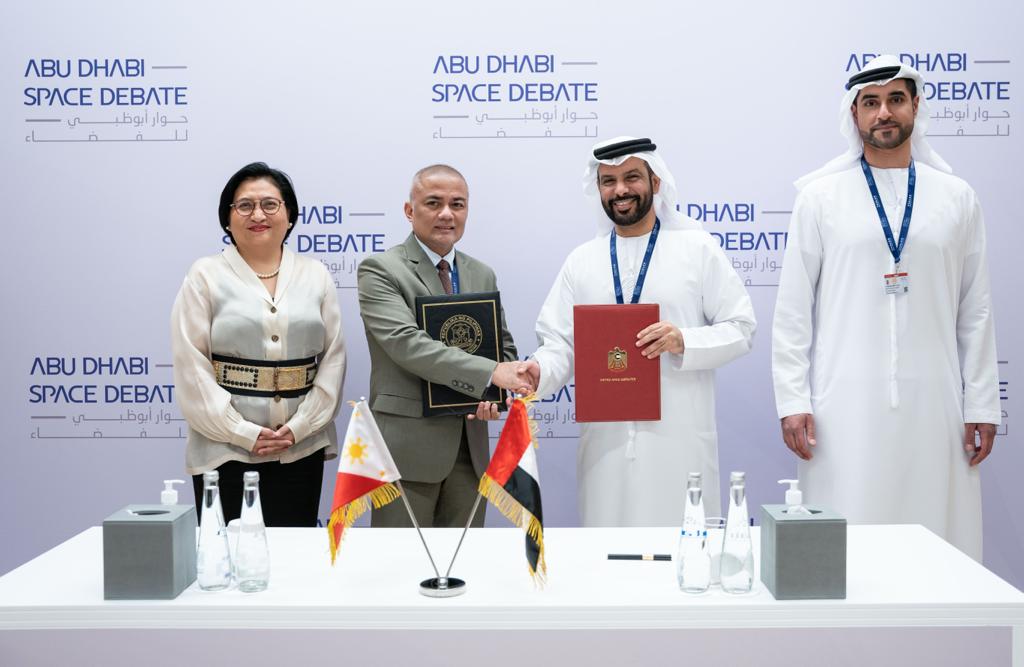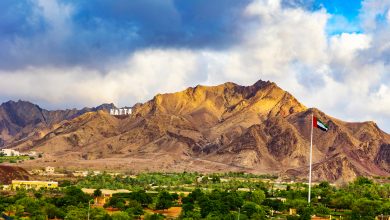The Philippines and the UAE formalized their space technology cooperation today by signing a Memorandum of Understanding (MOU) on Space Cooperation between the Philippine Space Agency (PhilSA) and the UAE Space Agency (UAESA) on the sidelines of the UAE’s Abu Dhabi Space Debate at the ADNOC headquarters.
Dr. Joel Joseph S. Marciano Jr., Director General of the Philippine Space Agency, signed on behalf of the Philippines, while UAESA Director General Salem Butti Salem Al Qubaisi signed on behalf of the UAE. Philippine Ambassador to the UAE, H.E. Hjayceelyn M. Quintana, witnessed the signing.
“The signing of the MOU is a truly momentous development in our bilateral relations, this MOU on Space Cooperation proves that the potential for further expansion of the collaboration between the Philippines and the UAE is limitless as both sides continue to discover new and innovative areas where we can work together,” said Amb. Quintana.
Amb. Quintana added: “The MOU on Space Cooperation paves the way for deeper collaboration between the two countries in space technologies that will address food security, natural disaster mitigation, and enhance economic growth, thus ensuring a bright future for the next generation. It is my hope that this will also spur the interest of Filipino and Emirati youth to aspire for careers in science and technology.”
For his part, UAESA Director General Salem Al Qubaisi said: “The UAE Space Agency is committed to constructive international partnerships with various agencies to exchange experiences, which reflect positively on the development of the space sector in the country, through developing qualified talents and human resources that can consolidate the sustainability of the sector.”
Despite the fact that both the PhilSA and the UAESA are relatively young space agencies, both see enormous potential in many areas of cooperation, including joint space research and development; exchange of space data for use in climate change, disaster management and emergency response, food security, and agriculture; joint scientific missions on space exploration; capacity-building activities; and advancement of space education through student exchange programs.
The Philippines’ bilateral partnership with the UAE is consistent with the direction the Philippine Government is taking under President Ferdinand R. Marcos, Jr., who stated that the country’s preparedness for natural disasters and push for economic growth should be driven by data and science, which can be derived from the Philippines’ space cooperation with bilateral partners.
Recently, President Marcos expressed his full support for the launch in 2025 of the Multi-spectral Unit for Land Assessment (MULA) Satellite, which is currently being developed by PhilSA and is expected to cover 73,000 square kilometers in 24 hours, gathering data on the Philippines’ entire land, air, and sea territory. This satellite can detect air and water quality, locate productive fishing sites; zoom in on traffic issues in cities and metropolitan areas; and improve maritime domain awareness, as well as 24-hour monitoring and security evaluation.




